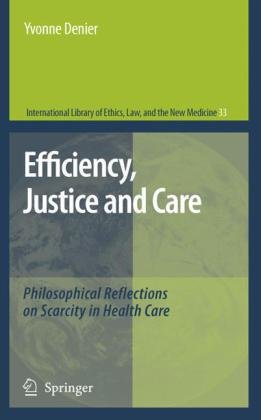

Most ebook files are in PDF format, so you can easily read them using various software such as Foxit Reader or directly on the Google Chrome browser.
Some ebook files are released by publishers in other formats such as .awz, .mobi, .epub, .fb2, etc. You may need to install specific software to read these formats on mobile/PC, such as Calibre.
Please read the tutorial at this link: https://ebookbell.com/faq
We offer FREE conversion to the popular formats you request; however, this may take some time. Therefore, right after payment, please email us, and we will try to provide the service as quickly as possible.
For some exceptional file formats or broken links (if any), please refrain from opening any disputes. Instead, email us first, and we will try to assist within a maximum of 6 hours.
EbookBell Team

5.0
98 reviewsWhat does just health care imply? Does it mean that people have a right to health care? Does it entail that there are rights-based social obligations to provide equal access to health care for everyone? And if so, why? Why are health care interests so important that they deserve special protection? What kind of social good is health care? What are its functions and do these make it different from other commodities? Furthermore, how much equality should there be in health care? What inequalities are morally acceptable and how should the burdens of achieving equality be distributed? Which matters of health care belong to the domain of justice, and which to the domain of charity? To what extent should we allow personal responsibility to play a role in allocating health care services and resources, or in distributing the costs? And what does justice require with regard to long-term care for the chronically ill and irreversibly dependent?
Since the 90’s, issues of scarcity, priority setting, and rationing lie at the centre of most current debates on health care. These are pressing issues: one way or another, limits have to be set. As such, the question of what is involved in just health care becomes much more complex. This complexity can be represented as an inconsistent triad, a set of three propositions of which any two are compatible but which together form a contradiction. In the case of health care, the three rival values are: social efficiency, justice, and decent-quality care. It seems to be that we can have any two but not all three. Essentially, the central question is the following: how best to square the proverbial welfare circle. How can resources be matched to needs, or needs to resources in socially acceptable and economically feasible ways?
This book attempts to answer the question how health care can be incorporated into a comprehensive theory of justice, while realising an acceptable balance between efficiency, justice and care.
‘…I find it (the book) to be uncommonly good. The author very carefully analyzes key philosophical positions as they have been applied in this area; the research is very thorough, the writing is clear and engaging. This book could well be used in just about any university course dealing with public health care.’ Professor David Novak, University of Toronto, Canada
‘One of the most interesting books I have read in a long time…a very extensive overview of some prominent modern theories of justice and their application to resource distribution in health care. Based on this it raises a number of new and original questions, some of which also receive original and convincing answers.’ Professor Søren Holm, Cardiff Law School, United Kingdom